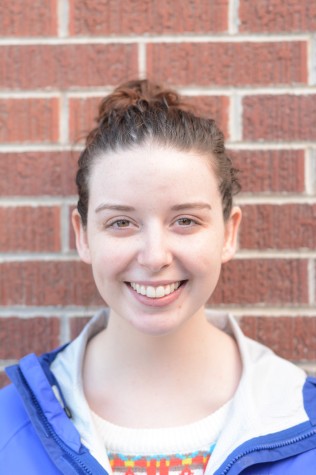Athletes live dual lives
Student athletes find opportunities to manage time and balance the workload between sport and study
October 17, 2012
They wake up early, eat a good breakfast, go to classes, watch game film, attend practices or lift weights, go home, eat dinner, do their homework and go to bed as early as they can. Then in the morning, student athletes go through this process all over again.
While the life of a student athlete can get exhausting, wide receiver Brandon Kaufman is able to keep it all under control.
“I don’t usually get stressed out,” he said. “I’m able to keep a balance.”
His ability to find a balance between athletics and academics recently earned him the honor of scholar-athlete of the month. As a sociology major, Kaufman has maintained a cumulative 3.2 GPA throughout his three years at Eastern.
Each month a male and female athlete receive the scholar athlete honor. And this month the award was also given to sophomore soccer forward Cassie Black.
Black is a pre-medicine major with a cumulative 3.7 GPA. “My dream would be to go to medical school,” she said. “I want to become a cardiologist.”
If there is one thing student athletes can agree upon, it is the necessity of time management skills. “It’s challenging at times but what really helps me is scheduling,” said tennis player Kelsey Knight. “I carry two agendas, one for tennis and one for school. I really have to be on top of things all the time.” Even with all of this planning, Knight admits that she still tends to procrastinate on occasion.
Black agrees that she finds herself doing the same thing. “[I’m] kind of a procrastinator,” she said. “There’s some days where I’m so tired [and I say] ‛I’ll just do it tomorrow.’”
Volleyball setter Laney Brown said she depends solely on her planner to keep her organized. “I have a planner. I write everything in my planner,” she said. According to Brown, if she forgets to write down what she has to do, she usually forgets to do it.
Brown said that during the preseason, her time commitment to volleyball is comparable to a full-time job. Knight said that tennis is different because it does not really have an off season. They have matches and tournaments from September through June. “Our matches can be from four to six hours long,” she said.
Kaufman, Brown and Black all said they try to take a lighter course load during fall quarter to accommodate their busy sports schedules. “I try to schedule my easier classes during the fall just so I can have a balance,” Black said.
When Black knows she is going to be on the road for a game, she does her best to get everything done ahead of time. Usually, away games require being gone for four days: two school days and the weekend. “We always try to do as much in advance as we can. When we’re on the road, we want our main focus to be on our sport,” Black said about her team.
When it comes to preparing for a test, Black has a method all her own. She likes to study hard for a Friday test on Monday, do a light review of the material Tuesday and Wednesday, go through another hard study session on Thursday, and then try to forget about the test completely on Friday so that she does not psyche herself out.
Kaufman finds tests much more stressful than football games. “Like Coach Baldwin says, you win the game throughout the week. If you have a good practice on Tuesday and Wednesday you’re usually not stressed going into a game and you know what you need to do for the game,” Kaufman said. “For a big test, I actually get way more stressed out. You never know exactly if you’re 100 percent ready for a test.”
Finding the balance between studying and playing sports can be a sacrifice, according to Knight. But it is something she would never want to give up. “It’s worth it to get to play and be an athlete.”








